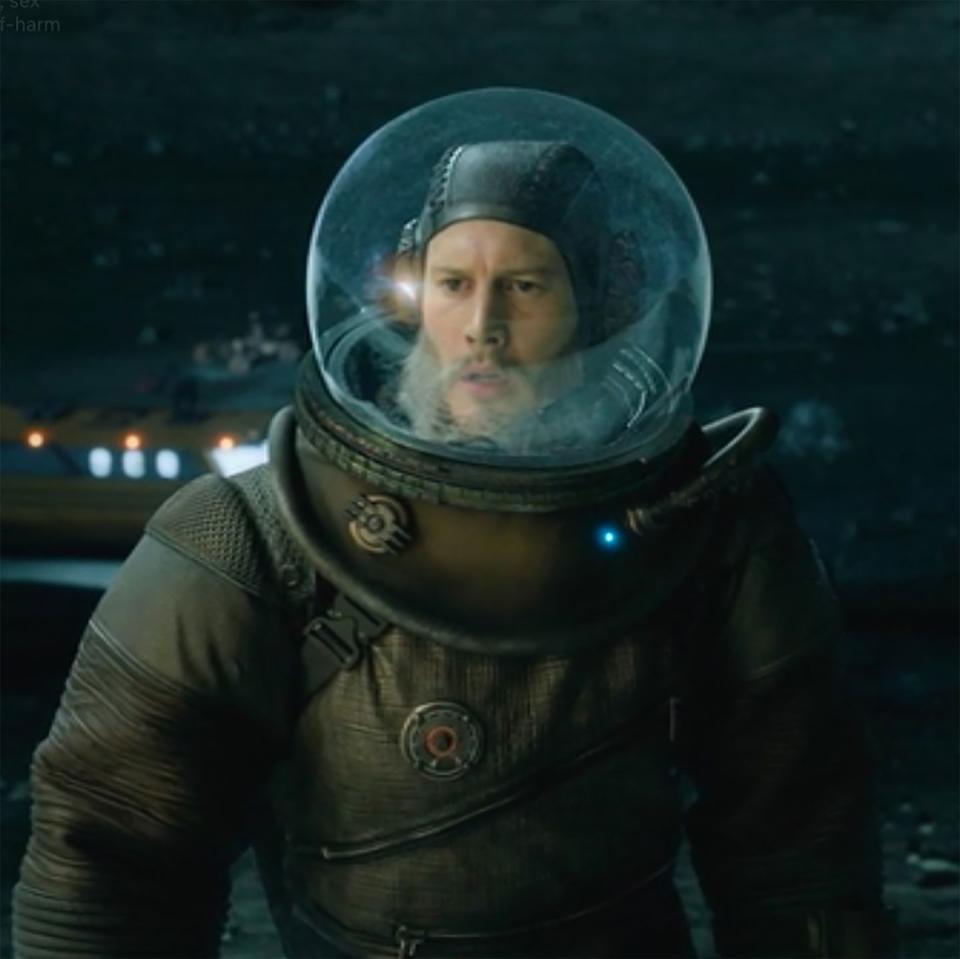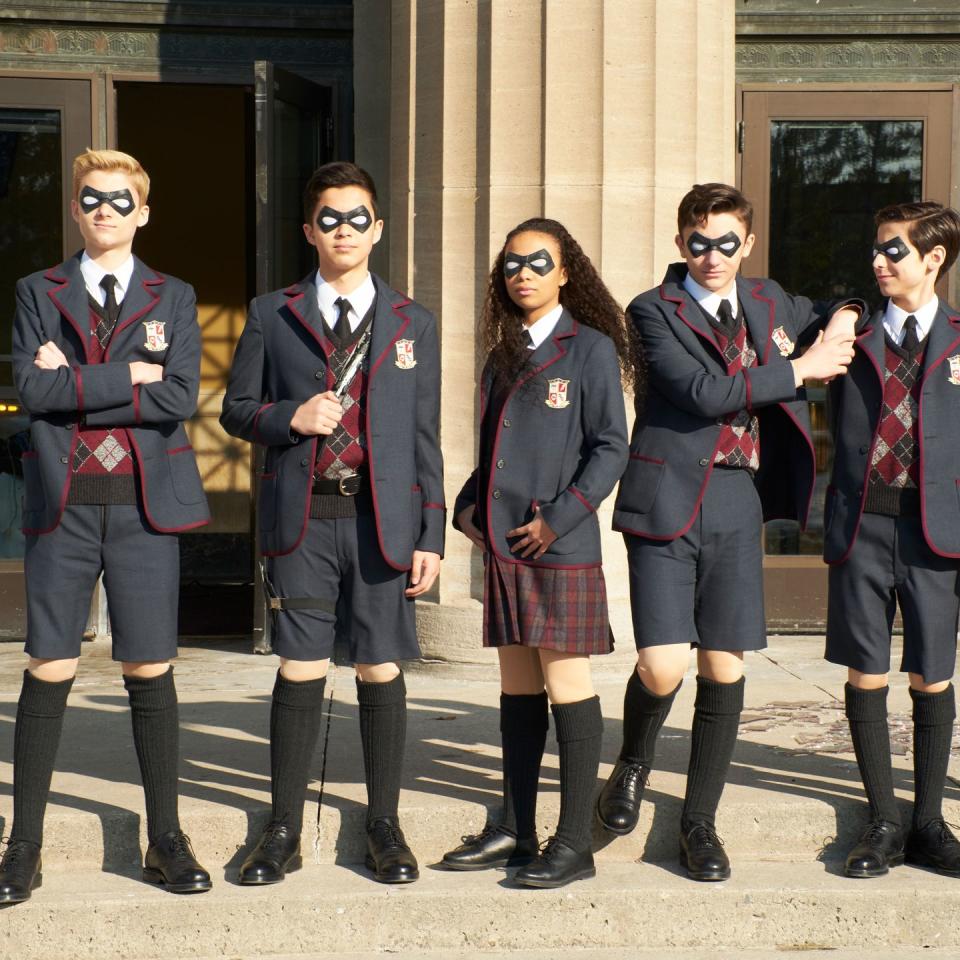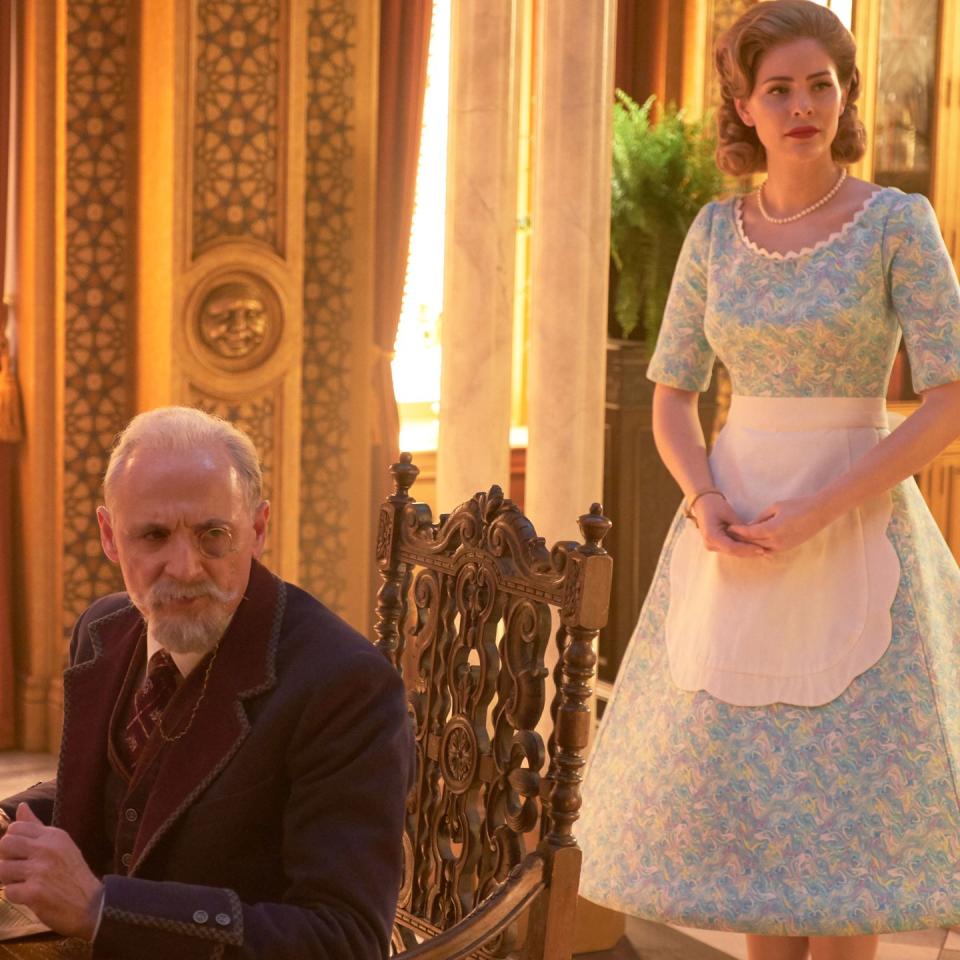The Umbrella Academy is a superhero story with one *big* difference

Before Luther (Tom Hopper) returned home following the death of his adoptive father, wealthy entrepreneur and world-renowned scientist Sir Reginald Hargreeves (Colm Feore), he had been living on the moon for four years, cutting a predictably lonely figure.
The only moment of respite from his isolated existence was when the sun burst into view, casting its glow across the polycarbonate of his astronaut helmet, before gradually sinking out of view.
But isolation is a small price to pay for doing a hero’s work, right?

Unknown to Number One, Sir Reginald was stuffing every package Luther mailed home under the floorboards of the academy, unopened and unread because their contents were meaningless.
"I wasn’t a good enough Number One," said Luther when he discovered the truth. "I couldn’t cut it, so he sent me away."
While talking chimpanzees, time-shifting and reality-bending grab the attention, it is deep-rooted destructive emotions that sit at the very heart of The Umbrella Academy – and not the children's abilities to manipulate reality or conjure the dead.
The extraordinary talents of Luther and his siblings absolutely play their part, providing fun theatrics that dazzle the senses and offer a much-needed respite from the familial tensions and self-loathing.

Watching Number Five (Aiden Gallagher) hop through time and space without breaking a sweat is always entertaining. When Vanya (Ellen Page) discovers that she does have super powers after all, we will her to explore her capabilities, bending metal lamp posts into submission.
But those moments only come into play when absolutely necessary, furthering the story and offering viewers fresh insight into the troubled minds of the protagonists and why they are the way they are.
In contrast to the likes of Daredevil, Arrow and numerous other superhero shows, the Hargreeves family won't solve their woes by using brute strength and cunning, but through familial reconciliation and healing.
It is Vanya's pain, after all which causes the apocalypse and not her telekinetic abilities, after Sir Reginald instructs Allison (Emmy Raver-Lampman) to use her own power to manipulate her sister.
As a result, Vanya grows up to believe that she isn't special and has nothing of substance to offer the world, a perilous mentality when you consider that a bottle of pills is the only thing stopping her from realising her true capabilities.
"I heard a rumour that you think you’re just ordinary," whispered the supernaturally persuasive Allison, and Vanya lapped it up, unable to shake off that feeling as she stood in the shadow of her super-powered siblings.

The destruction of the world is a consequence of their father's dominance and the emotional abuse all seven siblings were forced to endure, wounds that haven't healed. That anguish is threaded throughout The Umbrella Academy.
The show focuses on human emotion at the expense of heroics, which sounds like it should be one big let-down, but it isn't.
The Umbrella Academy is a tale of childhood trauma and how it sticks like tar, its tendrils burrowing into every facet of life, from the relationships we have with other people to the ones we share with ourselves.
This is a superhero story, but if you're in it solely for the action, you're going to be disappointed.
Want up-to-the-minute entertainment news and features? Just hit 'Like' on our Digital Spy Facebook page and 'Follow' on our @digitalspy Instagram and Twitter account.
('You Might Also Like',)

 Yahoo News
Yahoo News 
